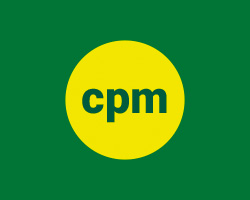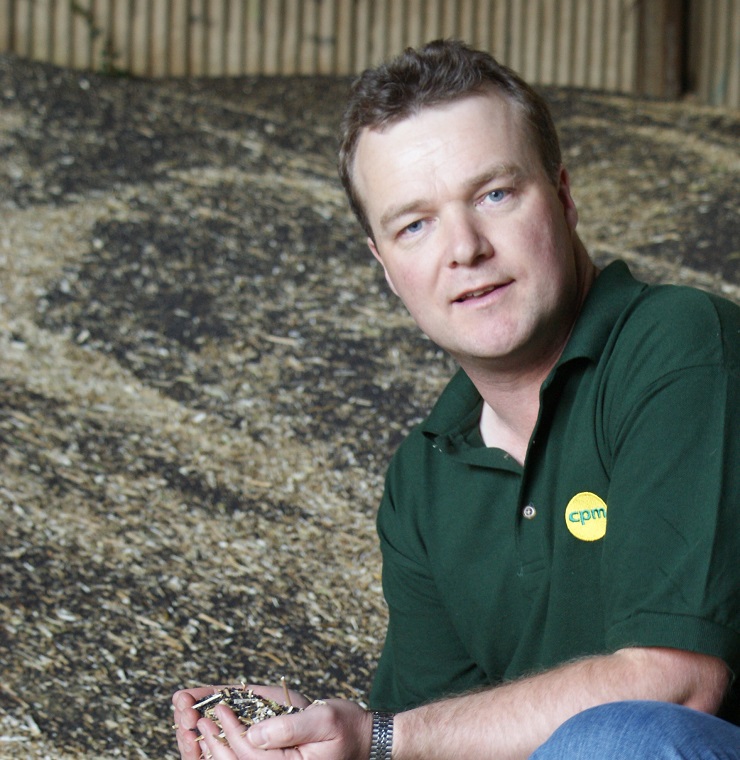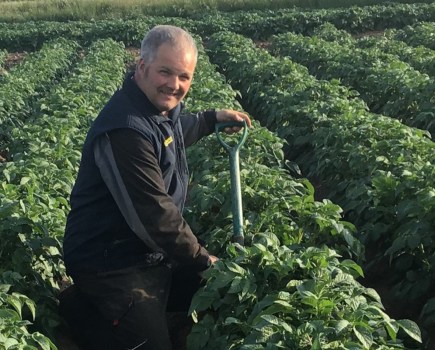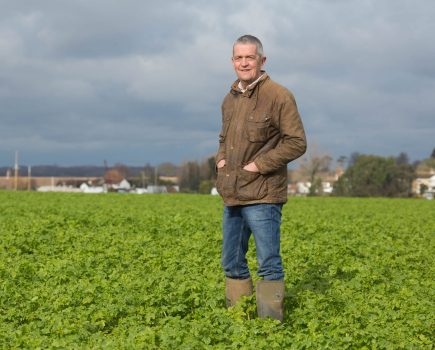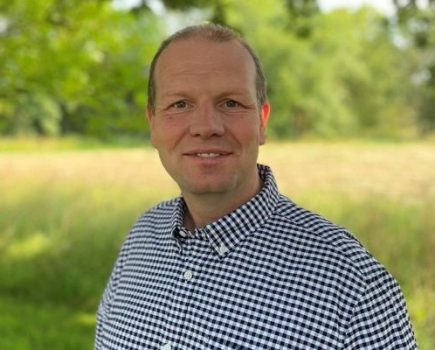One of the tasks I’d set myself for Cereals this year was to talk to a couple of banks. I’ve been with HSBC for the past 20 years, but the relationship manager took voluntary redundancy and the new one is non-agricultural – it’s hard enough to bring a new manager up to speed on my business, let alone one who doesn’t understand farming.
It seems I’m not the only one who’s feeling the pain of HSBC appearing to withdraw from agriculture – the bank has ended its role as principal sponsor of Cereals. What was noticeable by its absence at the event this year was the reassurance of the HSBC branding about the site. To me, that had always signified my bank had been prepared to invest to show it supported arable farmers.
What was also missing at Cereals was a Defra minister. Don’t get me wrong – the content of the Brexit debate and the technical seminars and panel discussions that followed were some of the best I’ve witnessed. And it’s apparently purdah that prevented a minister coming to the event so close to a referendum. But rather like someone who gets a few too many RSVP ‘nos’ to a significant birthday bash, you begin to wonder what on earth we did as an industry to prompt these significant players to go cold on us.
It’s at a time growers are feeling particularly vulnerable, too. Within the Cereals coverage in this month’s CPM, we report on the NFU campaign to retain the active ingredients we have, and the challenge the industry faces Also widely reported at Cereals was the fact that arable farming finances are at a low ebb, and that many businesses are now finding it tough to make the reinvestment they need.
But what also came across loud and clear at Cereals is the immense amount of talent in the industry, the opportunities up for grabs for those prepared to take them, and the technology and ideas that can drive businesses forward.
So it was heartening for starters to see three major chemical manufacturers launch not only new products, but give us a glimpse into their promising pipelines. In the machinery lines, the fact that many growers are struggling to find the cash to reinvest didn’t seem to limit the ideas and innovations on show.
And new at the event was the drone zone. It’s clear the capability and cost of this technology now give it the potential to deliver real benefits on farm, but how? We think the answer is to give it a go and find out for yourself, and our article online explores a number of ways to do this.
Controlled traffic farming is another area that requires a bit of innovative thinking and determination to get the best from the technology – we’ve visited a farm in Norfolk that modified the drill to ensure success. We’ve also been to a Surrey contractor who got to try out a pre-production New Holland T7 HD tractor.
But one of the main purposes of a day at Cereals for many growers is to scope out variety choices. According to those in the red caps leading the tours through the plots on the AHDB Cereals and Oilseeds stand, there’s more interest this year in newer varieties, especially those with better disease resistance. So in Theory to Field, we’ve explored AHDB’s new relative risk chart.
We’ve also visited a farm in Oxon to talk through wheat varieties with someone who’s had variety trials on his farm for over 40 years (p18). Likewise, we’ve been to Wilts for a tour of the oilseed rape plots grown on Martin Smart’s farm (p36), and Tech Talk investigates the value of companion cropping.
Insiders View explores OSR candidate variety from DSV Dariot and we take a look at the oat market, and promising new AHDB Recommended List newcomer Maestro. Meanwhile, for those who missed the technical seminar at Cereals from Leics grower Mark Wells on how to ensure a profit from a crop of spring beans, we’ve visited his farm, and have the full insight.
For sugar beet growers, variety choice is just part of the equation, which is why we’ve taken a look at what the post-quota era of production holds in store as well as an analysis of the new BBRO Recommended List newcomers.
Finally, in Features we tell the story of DoubleTop – if you visited the CF Fertilisers stand at Cereals, you may have had a sneak preview of this Innovation Insight. And our On-farm innovator is independent agronomist David Jones, who has a passion for the trials work he carries out.
One of the things I find interesting about David Jones is that if he has an unanswered question, he puts the time and resource into trials to find the answer. Is that something we do enough on our own farms? As I illustrated in my opening paragraph, we’re often the first to bemoan the lack of expertise in our industry, and the lack of understanding others have of our production systems, but how much do we actually do to address those problems?
The NFU suggests one route to tackle the lack of understanding is to start by tweeting what we do. I think it’ll take a bit more than that before my new HSBC relationship manager understands my business. But it’s when you look outside the comfort zone of your own business, and outside the industry that gathered itself into a field in Cambs, that you realise we can’t rely on others to support us when times are tough, and it’s only through our own collective efforts that we establish our place in society.
Tom Allen-Stevens has a 170ha arable farm in Oxon, and if you receive an invitation to his next birthday bash, please RSVP ‘yes’.

